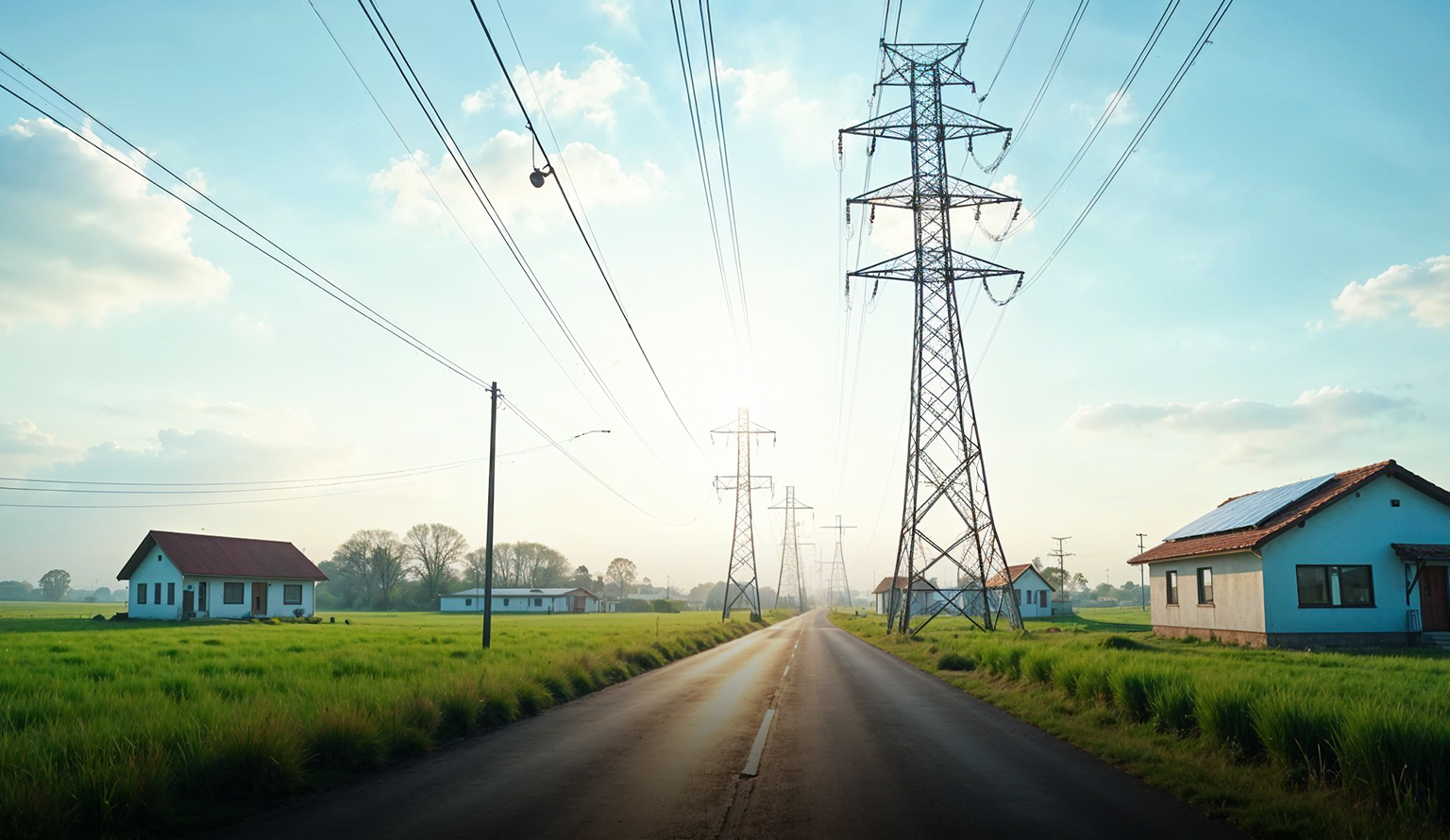India faces a significant disparity in energy and progress between rural and urban areas, with rural electrification emerging as an essential solution to bridge this gap. Government initiatives such as the Deen Dayal Upadhyaya Gram Jyoti Yojana (DDUGJY) and the Pradhan Mantri Sahaj Bijli Har Ghar Yojana (SAUBHAGYA) have played a pivotal role in addressing this issue.
As a result, the percentage of India’s rural population with access to electricity rose from just 60% in 2000 to an impressive ~100% by 2022, as per World Bank data. While these milestones are noteworthy, challenges remain in ensuring reliable and equitable energy access across rural India. This is where innovative infrastructure development and robust EPC procurement services are stepping in, paving the way for sustainable rural electrification.
Progress in Rural Development and Electrification
India’s rural electrification efforts have transformed millions of lives, with initiatives like the GARV Scheme electrifying 18,374 villages (as of Feb, 2024)—14,942 of which were connected through off-grid solutions like solar systems. The SAUBHAGYA Scheme has further improved socio-economic conditions for over 26 million households, expanding access to electricity. However, the success and scalability of such programs heavily depend on efficient EPC (Engineering, Procurement, and Construction) services. A well-executed EPC framework ensures timely project execution, optimized resource allocation, and seamless grid integration. With stronger EPC involvement, rural development and electrification could progress even faster, enhancing economic growth, healthcare, and education in underserved areas.
Persistent Challenges in Rural Electrification
Despite significant achievements, some hurdles demand immediate attention:
- Infrastructure Development Deficits: Outdated and inefficient grid systems result in high energy losses and unreliable power supply, particularly in remote regions.
- Power Quality Issues: Voltage fluctuations and frequent outages continue to plague many electrified households, particularly in underserved states like those in Northeast India.
- Economic Viability: High costs associated with extending electricity to remote areas put a financial strain on distribution companies (discoms), raising concerns about the sustainability of these efforts.
These challenges highlight the need for advanced infrastructure construction and strategic EPC services to drive the next phase of rural development and electrification.
Role of EPC Services in Rural Electrification
Engineering, Procurement, and Construction (EPC) services are instrumental in overcoming rural electrification challenges. By streamlining project execution, EPC procurement services offer innovative solutions that address both current limitations and future demands.
Key Benefits of EPC Services
- Renewable Integration: EPC contractors are deploying renewable energy systems such as solar mini-grids to provide sustainable electricity to off-grid areas.
- Modernized Infrastructure Development: Upgrading outdated grids reduces energy as well as AT&C losses and ensures a stable power supply.
- Community-Centric Solutions: Engaging local stakeholders ensures that infrastructure projects meet specific regional needs, enhancing their sustainability.
- Cost-Efficient Execution: EPC services optimize resources, reducing the financial burden on governments and discoms while ensuring high-quality outcomes.
Transforming Villages with EPC and Renewables
EPC services are incorporating distributed renewable energy (DRE) systems, leveraging advancements in solar, wind, and battery storage technologies. These systems offer reliable and environmentally friendly alternatives to traditional grid-based solutions. As India progresses toward universal rural electrification, innovative infrastructure construction and advanced EPC services will play a defining role. The adoption of renewable energy technologies and community-driven approaches will address existing gaps and ensure long-term energy sustainability.
Shaping the Future of Rural Electrification with EPC & Renewables
EPC services will continue to drive India’s rural electrification efforts, integrating renewable energy systems, advanced infrastructure, and community-based models. As we move toward universal electrification, EPC-driven solutions will empower rural communities, stimulate economic growth, and enhance educational and healthcare outcomes.
Jakson is at the forefront of this revolution, offering exceptional EPC services for rural electrification. With a proven track record in delivering solar power plants, rural electrification projects, substations, and metro rail electrification, Jakson’s expertise is helping create a cleaner, more sustainable future—one village at a time.
FAQ:
How do infrastructure solutions and EPC services contribute to rural electrification?
Infrastructure components (like transmission/distribution lines, solar microgrids, energy storage) combined with EPC (Engineering, Procurement & Construction) services ensure that the design, equipment procurement, installation, commissioning and maintenance are handled seamlessly.
What kinds of technologies are commonly used in rural electrification projects?
Typical technologies include decentralized solar PV systems, battery storage, mini-/micro-grids, off-grid and hybrid solutions (solar + diesel/gas backup), efficient appliances, and smart distribution networks.
“What challenges are associated with rural electrification in India? “
Some key challenges include difficult terrain, low population density, funding constraints, regulatory and grid synchronization issues, ensuring community engagement and long-term maintenance, and adapting to local environmental conditions.
How can a reliable EPC partner help overcome those challenges?
A competent EPC partner brings in technical design expertise, procurement of quality equipment, local logistics handling, skilled manpower, timely installation, adherence to safety and regulatory norms, and ongoing operations & maintenance support.









